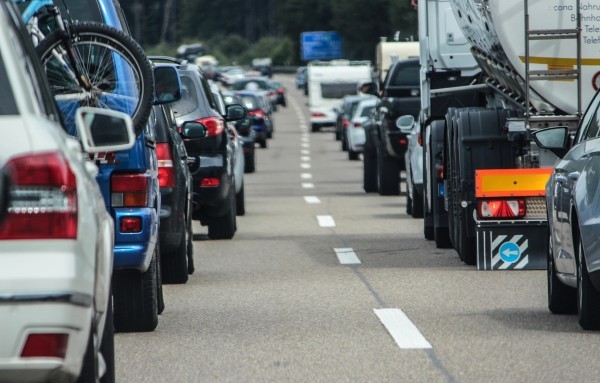Re-elected Seoul mayor likely to ban old diesel cars in city center
By Kim Bo-gyungPublished : June 14, 2018 - 16:43
After a sweeping election victory by the Democratic Party of Korea, leaders of municipalities are likely to push ahead with an administrative drive to ditch old diesel cars and boost electric vehicles as part of their campaign pledges.
Re-elected Seoul city major Park Won-soon vowed during his campaign that he would classify vehicles in five different groups based on the amount of emissions and make an alternative-day-no-driving system mandatory.
Park said incentives would be given to vehicles emitting CO2 less.
On April 25 this year, the Ministry of Environment began dividing all registered vehicles into one of five categories based on the amount of emissions they produce and their production date, with one concerning EVs and fuel cells.
Under Park‘s plan, level 4 and 5 vehicles will gradually be banned in Seoul, ultimately reducing pollution, while incentives would be given to clean vehicles.
Re-elected Seoul city major Park Won-soon vowed during his campaign that he would classify vehicles in five different groups based on the amount of emissions and make an alternative-day-no-driving system mandatory.
Park said incentives would be given to vehicles emitting CO2 less.
On April 25 this year, the Ministry of Environment began dividing all registered vehicles into one of five categories based on the amount of emissions they produce and their production date, with one concerning EVs and fuel cells.
Under Park‘s plan, level 4 and 5 vehicles will gradually be banned in Seoul, ultimately reducing pollution, while incentives would be given to clean vehicles.

“Air is always moving, which means air isn’t divided according to Seoul and Gyeonggi, and air from China is also exacerbating (pollution here),” Park said during a television debate last month with other Seoul major candidates.
According to the environment ministry, the average amount of fine dust in Seoul was 41 micrograms per cubic meter in 2012, which rose up to 48 in 2016.
New Gyeonggi Province Gov. Lee Jae-myung also vowed to change diesel-powered buses to compressed natural gas and electrified ones, replace engines in old construction machines with new ones, an install more EV charging stations.
The ruling Democratic party, which Park and Lee are members of, noted fine dust as a key issue to resolve, promising to boost EVs and EV chargers, cut down on old diesel-powered vehicles by 2022, install emission reducing devices on old construction machines and replace old diesel cargo with liquefied petroleum gas-based ones.
In terms of future mobility, the ruling party vowed to develop technology needed to commercialize self-driving vehicles by 2020.
In detail, it plans to form smart infrastructure countrywide, including smart roads and maps for autonomous driving, alongside conducting test drives of driverless public transportation.
By Kim Bo-gyung (lisakim425@heraldcorp.com)






![[From the Scene] Monks, Buddhists hail return of remains of Buddhas](http://res.heraldm.com/phpwas/restmb_idxmake.php?idx=644&simg=/content/image/2024/04/19/20240419050617_0.jpg&u=20240419175937)







![[From the Scene] Monks, Buddhists hail return of remains of Buddhas](http://res.heraldm.com/phpwas/restmb_idxmake.php?idx=652&simg=/content/image/2024/04/19/20240419050617_0.jpg&u=20240419175937)

![[KH Explains] Hyundai's full hybrid edge to pay off amid slow transition to pure EVs](http://res.heraldm.com/phpwas/restmb_idxmake.php?idx=652&simg=/content/image/2024/04/18/20240418050645_0.jpg&u=20240419100350)

![[Today’s K-pop] Illit drops debut single remix](http://res.heraldm.com/phpwas/restmb_idxmake.php?idx=642&simg=/content/image/2024/04/19/20240419050612_0.jpg&u=)